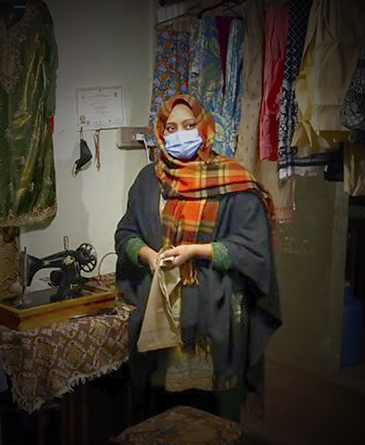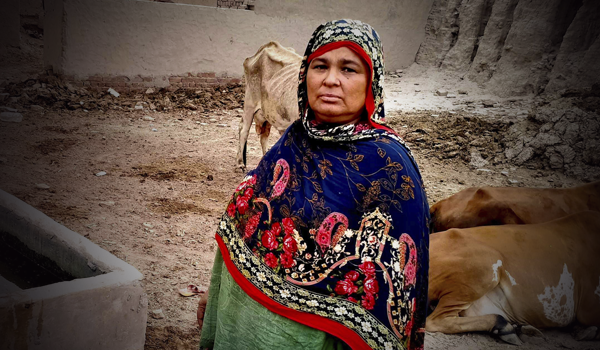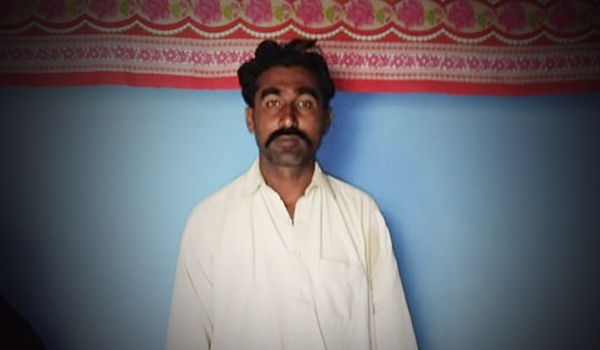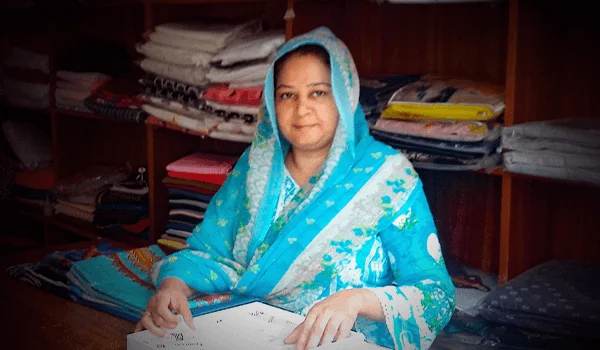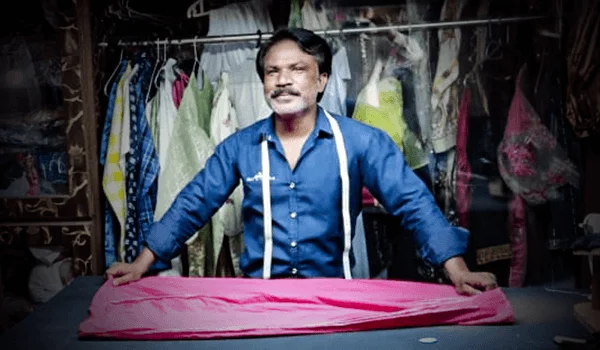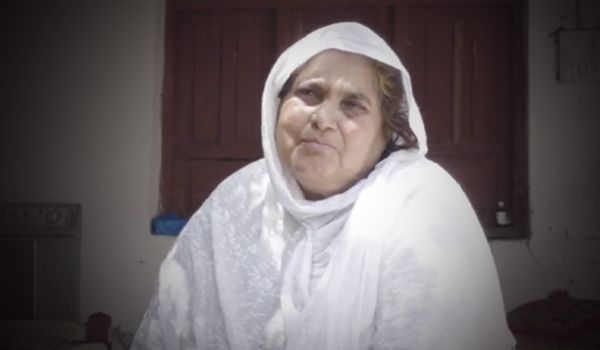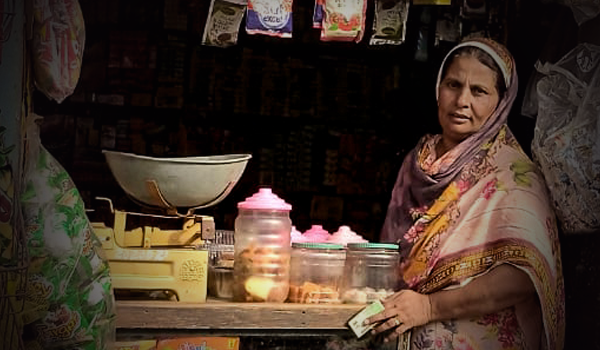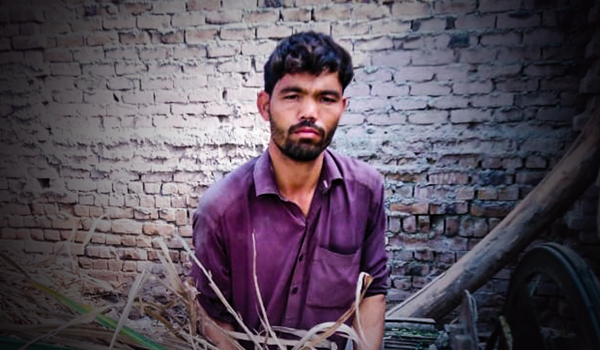Sadaf Amir, a mother of two, runs a successful cloth selling and stitching business in Islamabad. Her story is a testament to the phenomenal role that financial inclusion, powered by digital banking technology, can play in transforming lives.
Sadaf’s husband was the sole breadwinner of the family but had limited income. Sadaf’s father-in-law used to help support their family but after he passed away, their financial resources became severely constrained, and Sadaf was required to work to help supplement the household income.
Trusting her entrepreneurial skills, Sadaf decided to step into the business of clothing in 2016. She started by visiting multiple areas in her vicinity to market her products and stitching services. Eventually, she was able to find customers and take in her initial orders. Owing to her hard work and determination, Sadaf was able to build strong connections with her clients and earned a positive repute for her quality work and timely services.
Sadaf had set up her operations with a single, old sewing machine, and on customer demand, used to sell unstitched fabric as well. However, despite consistent efforts, she was barely able to break-even, let alone achieve profit.
Sadaf knew she had to step up her game and understood the dire need of her business to attract investments. On the search for financial aid, she came across Mobilink Microfinance Bank, Islamabad, and asked for an initial capital push of PKR 100,000, which she needed to expand her venture. Upon receiving the required payment, she was able to purchase a new sewing machine and other necessary raw material. Soon, Sadaf was able to make her first profit figure of PKR 18,000 since the inception of her business and finally, her family was able to breathe a sigh of relief.
Sadaf repaid her first loan on time and applied for the second loan cycle immediately after. Throughout the tenure of her loan, she maintained a healthy, stable relationship with the bank and saw substantial growth in her clothing business. With every successive loan cycle, Sadaf kept expanding her business and was able to multiply her revenue by adding more products to her operations. Her business was now gaining momentum & a regular monthly profit was being generated.
Last year, when the world was plagued by the COVID-19 pandemic and businesses started suffering because of the subsequent lockdowns, Sadaf’s venture also got affected. It was then that Sadaf decided to leverage the power of digital technology and bring her payments online.
Although the pandemic negatively impacted her profitability, Sadaf kept her entrepreneurial spirit high and applied for a third loan cycle of PKR 150,000 to keep her business afloat. Using the funds, she not only purchased new stock but digitized her operations as well. She started using courier services to deliver her orders. Using Unstructured Supplementary Service Data (USSD) on her feature phone, Sadaf opened a JazzCash mobile wallet and began receiving payments digitally without the in-person hassle of cash transactions. Her business not only survived but started turning in healthy profits again.
While technology had initially been a last resort to keep her business afloat, Sadaf has now recognized the incredible outreach and convenience offered by digital banking solutions and has decided to continue using them, pandemic or not. She aims on buying a smartphone now to further expand the realm of her business and switch fully towards digital payment solutions, offering increased ease.
Sadaf is now running her business smoothly and is maintaining a healthy income for her family. She is also managing to save for her children’s higher education and is a symbol of pride for her husband and family.
“I will forever be grateful to Mobilink Microfinance Bank for helping me broaden my horizons and providing financial support in my hour of need. Had the bank not supported me, I could never have achieved everything I now have”, says Sadaf.
In a developing country like Pakistan, where women constitute almost half of the population, microfinance institutions have a major role to play in ensuring financial inclusion for all, particularly the underserved women. One of the major priorities at MMBL is to engender equality in banking practices and reduce the gender divide in financial inclusion. Some recent examples include the introduction of Women Inspirational Network – a flagship program to promote women empowerment, Bint-e-Hawwa – a female-centric deposit offering exclusively for women ranging from housewives to salaried professionals and entrepreneurs.
UN Women has found that there is a stark contrast between men and women with access to financial institutions and mobile-money-service providers; the ratio is 34.6% for men and 7% for women. This provides a huge potential for financial institutions to tap the untapped market segment and continue empowering people through micro-financing and the deployment of digital technologies for alleviating poverty.




